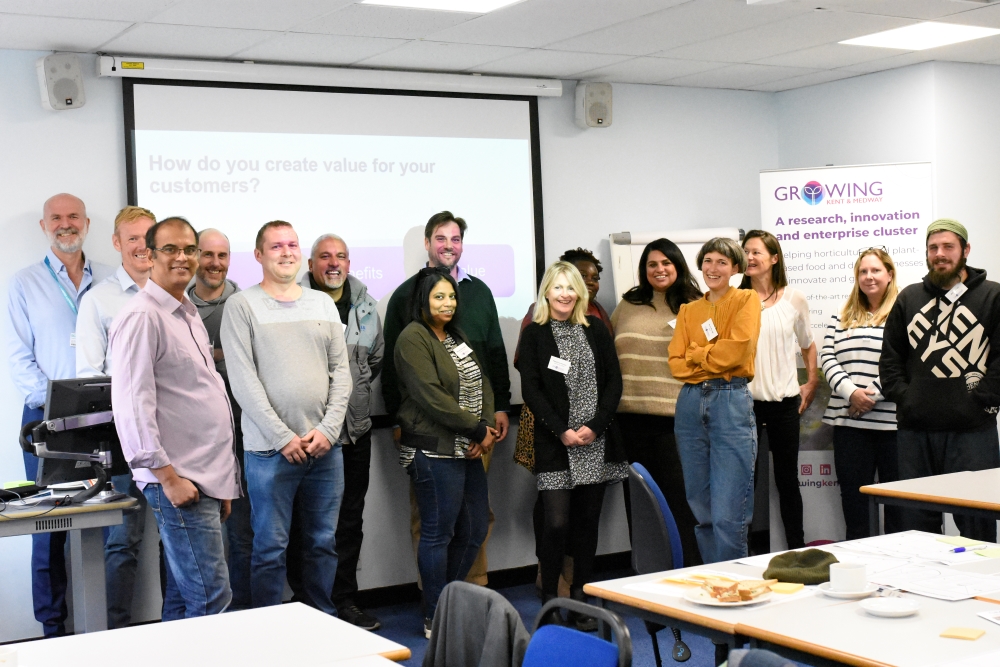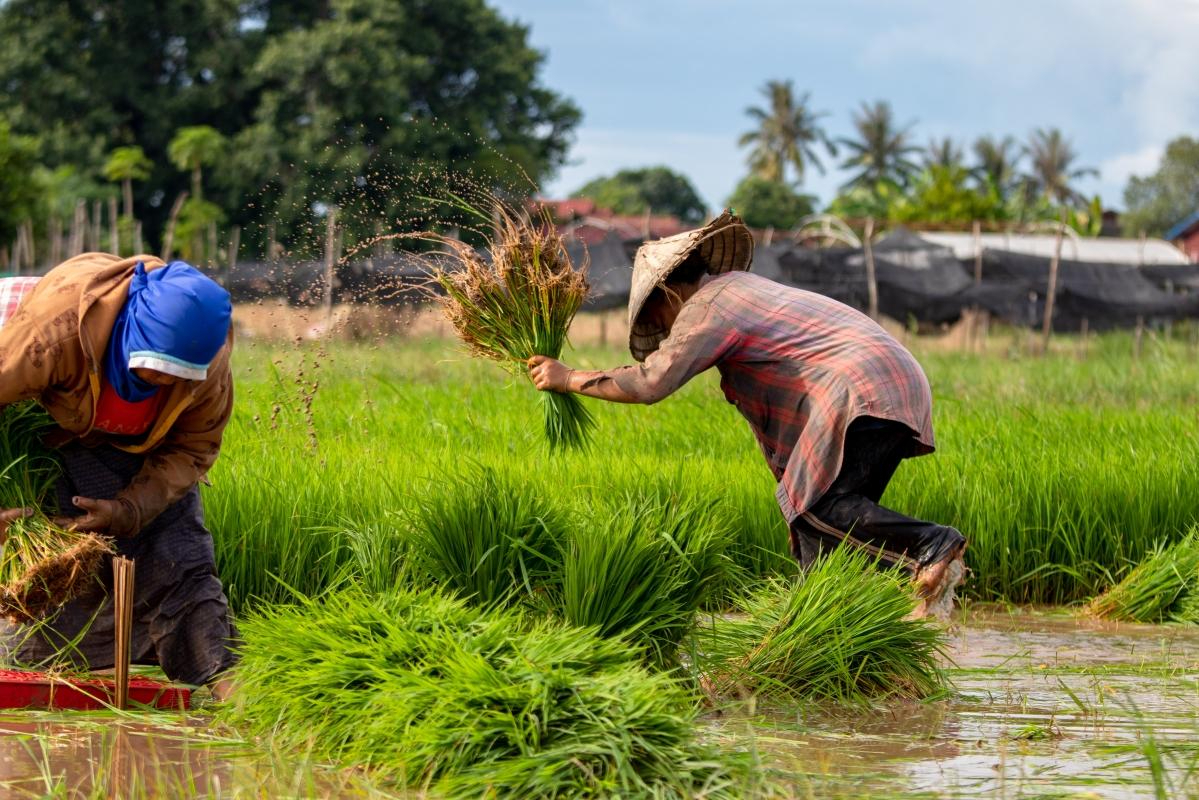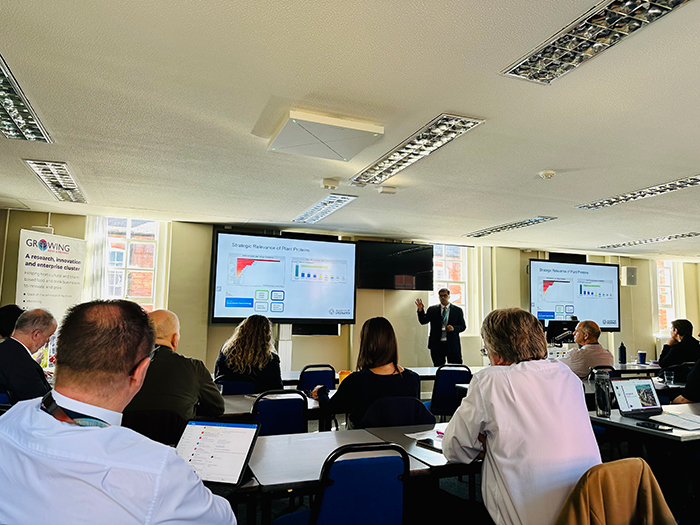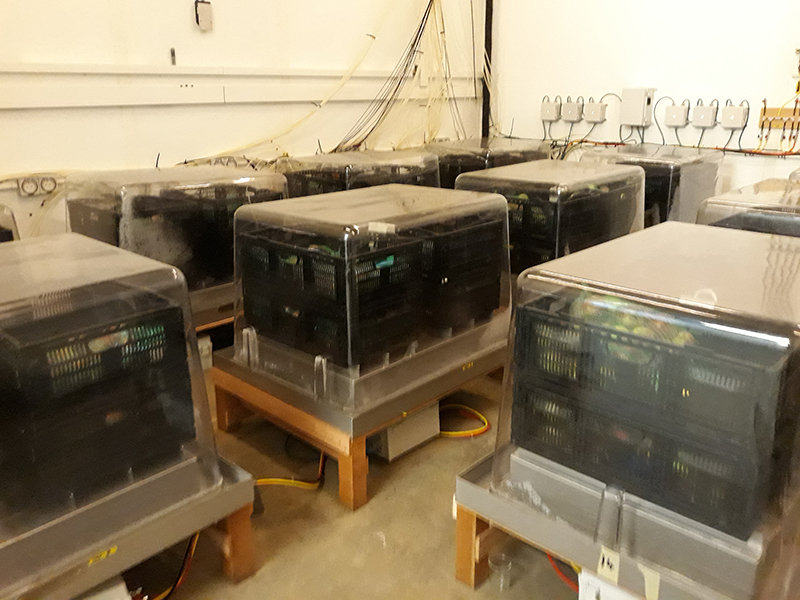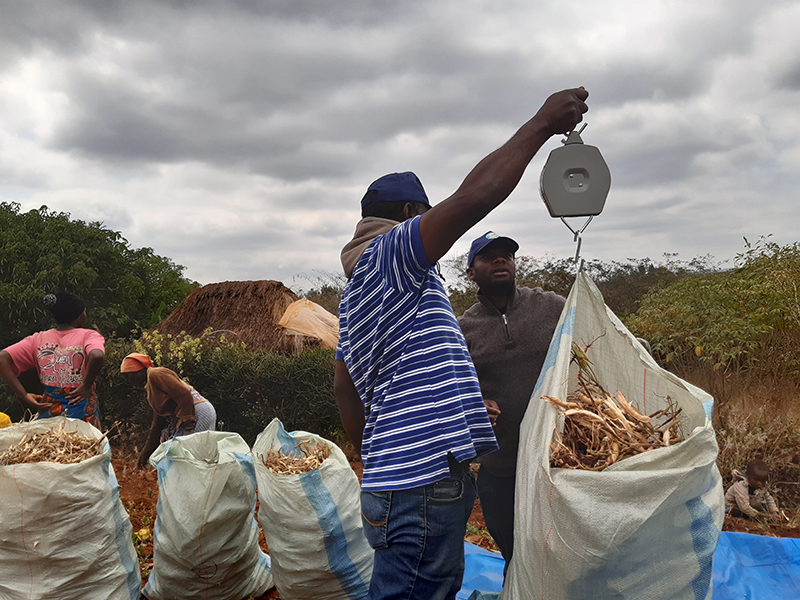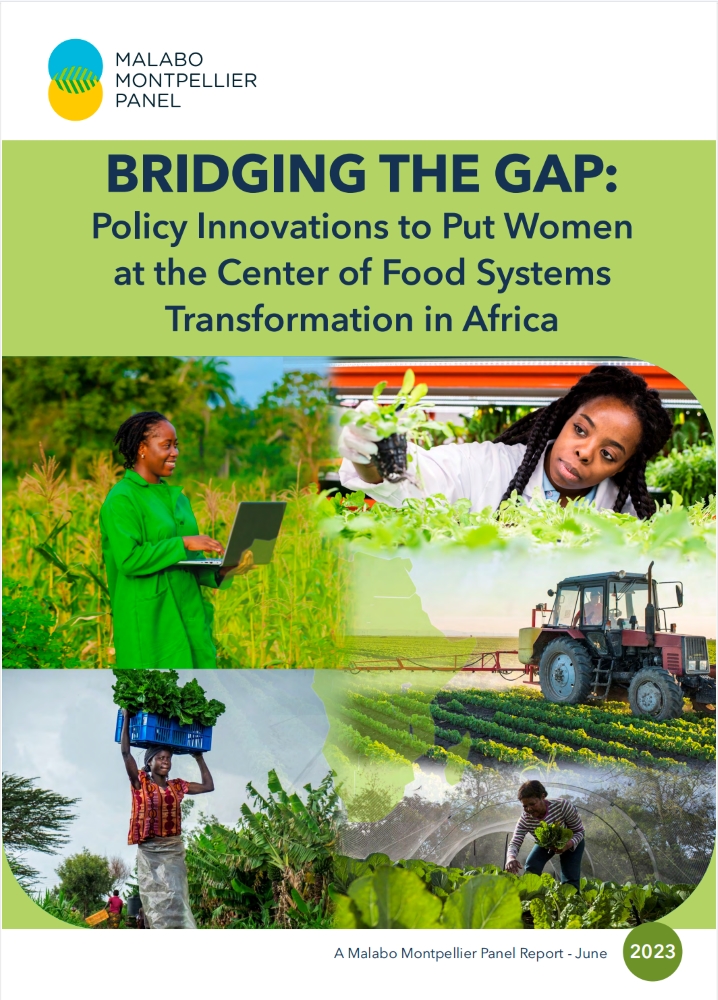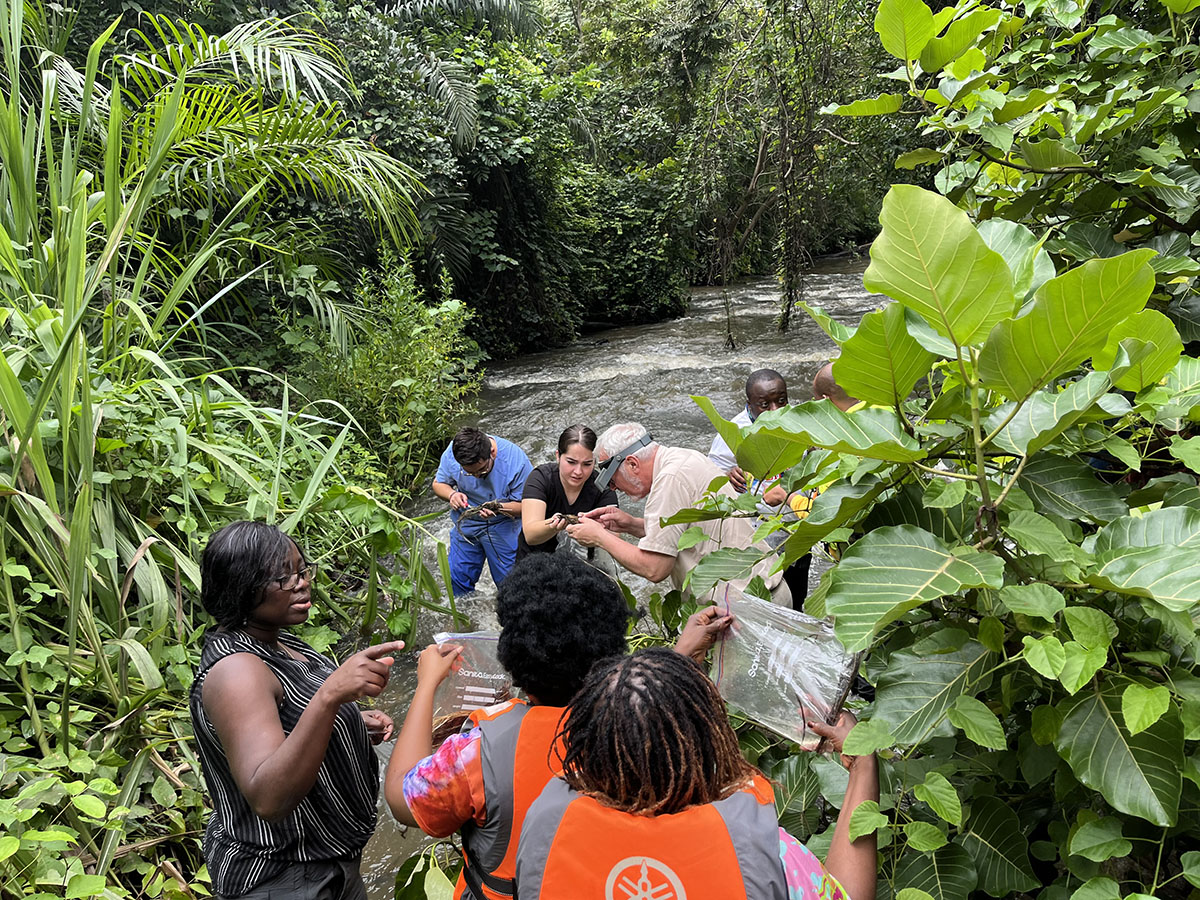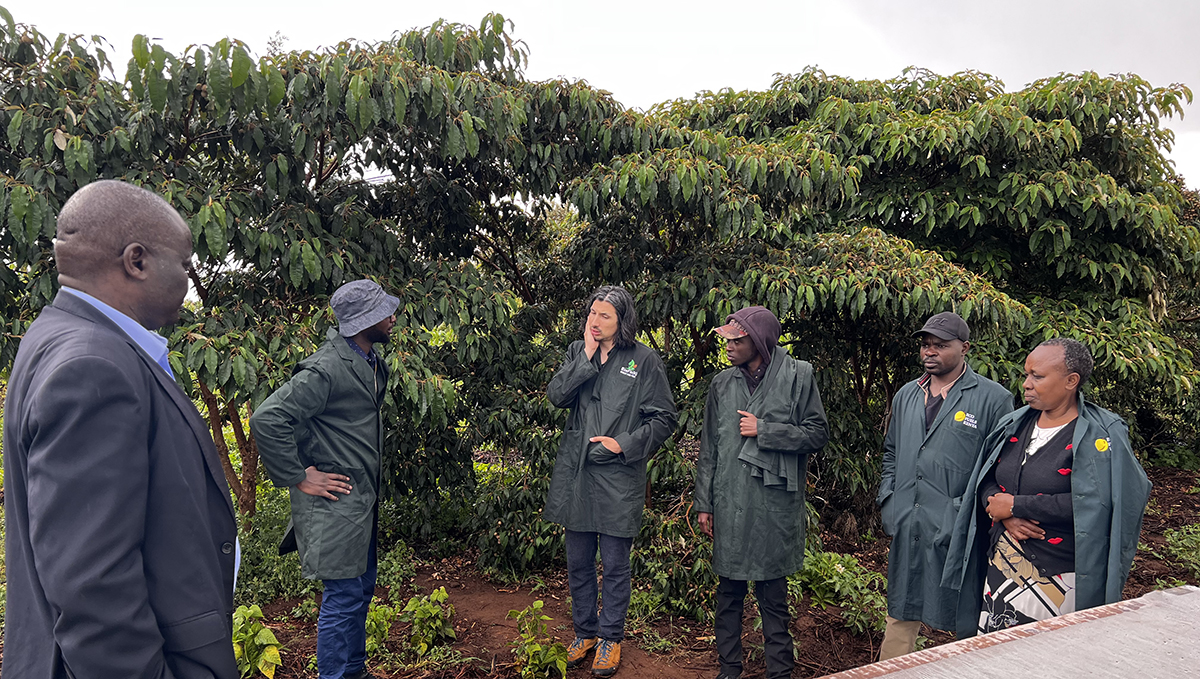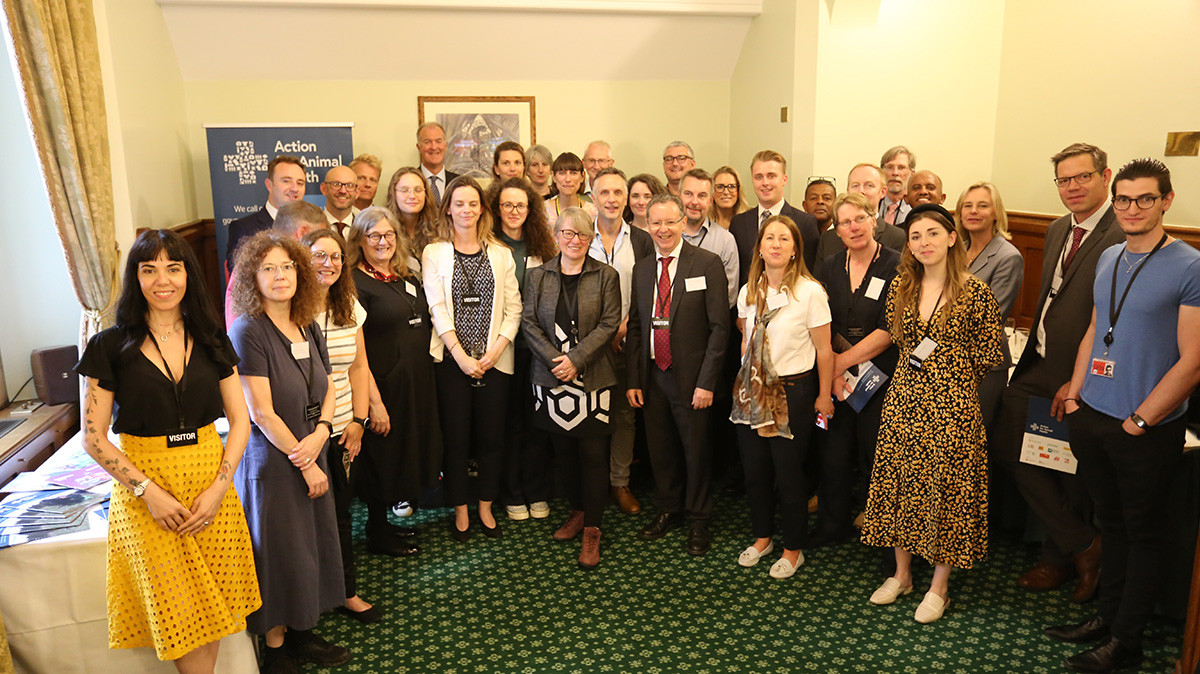News - 2023
The Food Accelerator programme welcomed its latest cohort of food and drink business owners in a lively introductory meeting on 16 October 2023. Participants representing 20 businesses will be trained over four months on various aspects of food...
Rural women are vital to the global economy and play crucial roles in food systems. Their activities are essential for both rural societies and urban communities. Women make up 43 percent of the global agricultural labour force. They cultivate the...
NRI recently hosted a Canadian delegation who were in the UK to explore partnership opportunities to advance research and development in alternative proteins. The visit, on 26 September, follows a new partnership between Innovate UK, under the...
Estimates suggest that nearly a third of the food produced for human consumption globally—roughly 1.3 billion tonnes a year—is wasted or lost on its journey from farm to table. At the same time, between 691 and 783 million people did not have...
While not immediately obvious, food loss and waste (FLW) are very complex phenomena. The data and metrics around the scale of FLW vary by commodity, location and year among other factors. FLW figures are the aggregated losses from each of the...
The mention of food safety in wet markets probably conjures up memories of the emergence of COVID-19 for most of us. But besides COVID-19, there are good reasons for our trepidation.
We are all trying to make healthier food choices especially with the rise in cases of obesity and other diet-related health complications. With the recently introduced government policy requiring larger food outlets to publish the number of...
The Malabo Montpellier Panel’s report ‘BRIDGING THE GAP: Policy Innovations to Put Women at the Center of Food System Transformation in Africa’, was launched at the 12th Malabo Montpellier Forum, which took place online on 8 June 2023. Professor...
A key challenge to eradicating onchocerciasis is a shortage of disease surveillance skills. Onchocerciasis, commonly known as river blindness, is a neglected tropical disease (NTD) caused by the parasitic worm Onchocerca volvulus. The parasites are...
Modern agriculture is heavily reliant on pesticides to meet the food, feed and fibre demands of a rising global population. Pesticide use has dramatically increased worldwide; however, increasing concern about their safety and sustainability is...
NRI’s Dr. Noushin Emami has recently been awarded the Flormanska prize 2023 by the Swedish Royal Academy of Sciences (KVA). She was recognised "for using creativity and great breadth in approach to have identified chemical substances that affect...
The Baroness Bennett of Manor Castle hosted a reception for the Action for Animal Health (A4AH) coalition for key political and veterinary figures at the House of Commons on Tuesday 4 July, to mark the formal launch of a new report.


